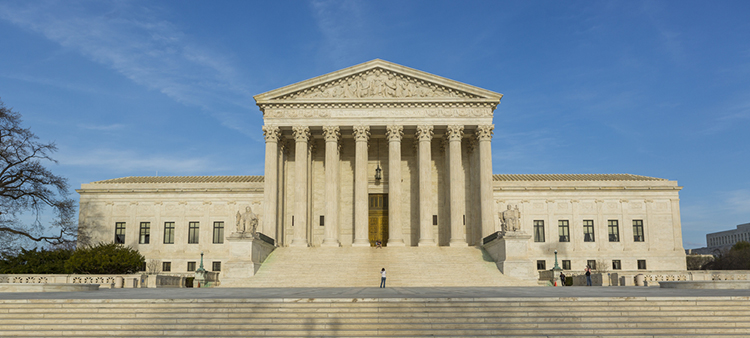Supreme Court sends signal that police 'can shoot first and think later,' Sotomayor dissent says

Shutterstock.com
An Arizona police officer who shot and wounded a woman holding a large knife didn’t violate clearly established law, the U.S. Supreme Court has ruled in a summary reversal.
In a per curiam opinion, the Supreme Court ruled that Tucson, Arizona, police officer Andrew Kisela was entitled to qualified immunity in an excessive force suit by the woman with the knife, Amy Hughes. The court ruled Monday, the same day it accepted the case. (The decision starts at page 10 of the order list.)
Justice Sonia Sotomayor dissented in an opinion joined by Justice Ruth Bader Ginsburg. The court is sending a signal that officers “can shoot first and think later,” Sotomayor wrote.
Kisela had shot Hughes in May 2010 after she emerged from her home with a large knife by her side, stopped about six feet away from a woman in the driveway, and refused to obey at least two orders to drop the knife. A chain-link fence separated Kisela and two other officers from the two women.
Officers had been called to the area after receiving a report about a woman acting erratically and hacking a tree with a kitchen knife. The woman in the driveway said “take it easy” before Kisela fired his gun four times. Hughes, who had a history of mental illness, was taken to the hospital and treated for non-life threatening injuries.
Kisela and two other officers at the scene said they believed Hughes was a threat to the other woman, who turned out to be Hughes’ roommate.
“Kisela had mere seconds to assess the potential danger” to the other woman, the Supreme Court said. “This is far from an obvious case” in which any competent officer would have known that shooting Hughes would violate the Fourth Amendment.
“Even assuming a Fourth Amendment violation occurred—a proposition that is not at all evident—on these facts Kisela was at least entitled to qualified immunity,” the court said.
In her dissent, Sotomayor said that Hughes “was nowhere near the officers, had committed no illegal act, was suspected of no crime, and did not raise the knife in the direction of [her roommate] or anyone else. … If this account of Kisela’s conduct sounds unreasonable, that is because it was.”
Sotomayor said that the court “routinely displays an unflinching willingness” to summarily reverse courts for denying officers qualified immunity, while failing to intervene on behalf of the people they shoot.
“Such a one-sided approach to qualified immunity transforms the doctrine into an absolute shield for law enforcement officers, gutting the deterrent effect of the Fourth Amendment,” Sotomayor said.
“The majority today exacerbates that troubling asymmetry. Its decision is not just wrong on the law; it also sends an alarming signal to law enforcement officers and the public. It tells officers that they can shoot first and think later, and it tells the public that palpably unreasonable conduct will go unpunished. Because there is nothing right or just under the law about this, I respectfully dissent.”
The case is Kisela v. Hughes.



